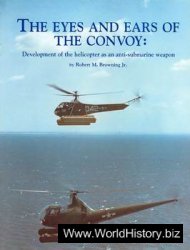U. S. president George Bush and various allies were convinced that Iraqi aggression threatened Western interests in the Persian Gulf. On August 9,1990, U. S. troops began arriving in Saudi Arabia. On November 29 the U. N. Security Council voted 12-2 to approve Resolution 678, which authorized U. N. member states to use "all necessary means" to force Iraq out of Kuwait.
After negotiations failed, the U. S. Congress authorized President Bush to use force pursuant to U. N. Resolution 678. The Iraqi parliament responded by authorizing President Saddam Hussein to go to war rather than withdraw from Kuwait.
A U. S.-led coalition of twenty-nine countries began an air campaign against Iraq on January 17, 1991. About 106,000 aerial attacks over a period of only thirty-seven days severely damaged Iraqi military installations, as well as civilian infrastructure— such as bridges and communications facilities.
In a desperate attempt to gain radical Arab support, Iraq fired Scud ground-to-ground missiles on Israeli cities, even though Israel was not directly involved in the war. However, the Arab nations remained in the anti-Iraq coalition.
When the allies' ground attack began on February 24, the Iraqis had no surveillance capacity, and Saddam's army quickly collapsed. On February 26, Saddam announced his withdrawal from Kuwait. President Bush declared a cease-fire the next day. Some observers wanted coalition forces to overthrow Saddam himself; however, that would have required a difficult occupation of Baghdad. On February 28, Saddam announced he would accept a cease-fire.
It has been estimated that 100,000 Iraqis died as a direct result of the war. The number of U. S. deaths in the war totaled 376. The coalition spent about US$82 billion in fighting the war. Iraq signed agreements requiring it to submit to several U. N. Security
Council resolutions. Most of the countries of the allied coalition were determined to prevent renewed acts of Iraqi aggression, and the international embargo continued in force. Contrary to expectations, Saddam stayed in power within Iraq.




 World History
World History









